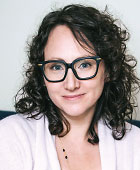Why I Got Off the Hamster Wheel
Abstract

As 2020 began, I was like a hamster on a wheel—but not running along at the bottom as the wheel turned. I was clinging to the sides for dear life as the momentum whipped me around and around and around. I thought I was doing all right; after all, hadn’t I avoided being flung from the wheel into the water dish? Isn’t that how everyone gets by?
I thought I was taking a modest path in my early career—I wasn’t even reaching for “triple-threat” clinician/educator/researcher status. But I had a busy private practice, a part-time state hospital job, resident supervision and teaching, and administrative meetings. I figured I would somehow find a way to contribute to the newly formed APA Committee on Women’s Mental Health, but I wasn’t sure where the time would come from. Home was a one-bedroom Manhattan oasis where I lived with my partner and two children, one with special needs. I was a cliched working mother, feeling pulled to do more and better in all of my roles. My health was suffering.
Queue the pandemic. With two businesses and two classrooms running out of the 600-square-foot apartment, I moved my practice into the bedroom closet where I sat on the floor and learned to use Zoom. At the state hospital, residents were redeployed to COVID-19 units, and we tried to protect our geriatric patients and staff as the virus ripped through the corridors indiscriminately. At the end of the day, I changed into clean scrubs, washed my hands up to the elbows, and used aseptic technique to navigate from my desk to the parking lot.
Over the course of this past year, we gradually established a new uneasy normal. The residents returned, my practice was busier than ever, and at home we developed our own curriculum for a child who rejected remote school with impressive clarity. The basic outlines were the same, but everything was a little harder and a little worse.
As I reached the limit of my capacity, the fulfilling parts of my professional roles got squeezed out first. On the inpatient side, I managed to handle documentation and clinical emergencies, but our efforts at community and family reintegration were decimated. I was emotionally drained after days of striving to connect with my private patients over video. I wasn’t learning, and my teaching was rote. If I had anything left for my family, it went into the logistics of the household, because our only structure was the structure I put in place. We watched a lot of television.
I finally realized it wasn’t serving anyone for me to stay on the hamster wheel. I give good advice about the oxygen mask and whose to put on first, so I should listen to it. I have to get some personal gratification from my work; otherwise, I’m not going to make it long enough to help anyone.
So I left my dear hospital colleagues, trainees, and patients, as well as a chunk of my identity and a long commute. I expanded my private practice and moved my family to a home where the kids share a room instead of a literal closet and where shoes don’t fall on my head during sessions.
I still want to make a contribution to medical education, care delivery systems, and physician wellness, but I’ve had to admit I can’t deliver all of these services directly myself. What I can do is leverage my time through policy work on the Committee on Women’s Mental Health, and I’m excited to finally have time to contribute. I’ll do the best I can during this unruly and unpredictable season in my life. I just don’t want to be a hamster anymore. ■



